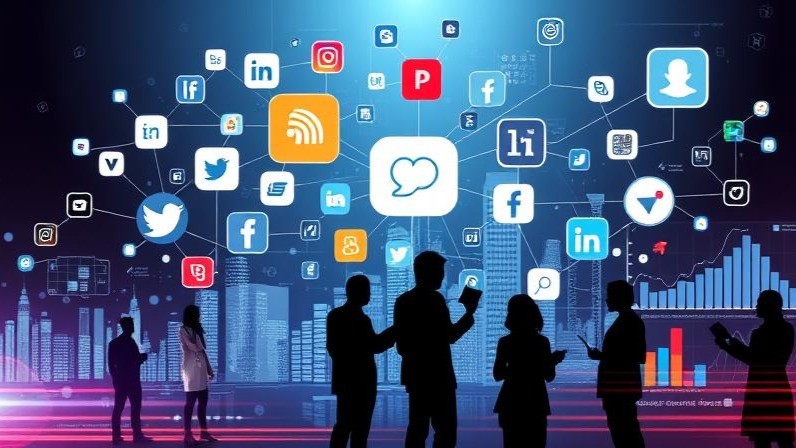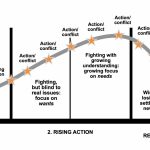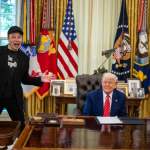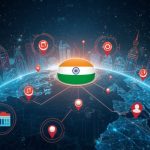Introduction
The world is witnessing a historic shift driven by the acceleration of digital technologies, the recalibration of global political relationships, and the expanding influence of celebrities in shaping public opinion. These interconnected forces are rewriting the foundations of leadership, reshaping how societies consume information, and transforming national strategies in ways previously unimaginable.
As governments build digital defenses, corporations develop AI-driven ecosystems, and public figures shape headlines with a single post, the boundaries between authority, culture, and innovation are dissolving. The result is a new kind of global leadership model powered by technology, influenced by celebrity narratives, and pressured by geopolitical demands.
Technology and the Rise of Global Influence
The digital revolution has shifted influence away from traditional institutions and toward technology firms that design the platforms powering modern communication. Nations are investing heavily in cybersecurity, satellite networks, and artificial intelligence to maintain global relevance, marking a new era where digital capability determines political leverage.
This technological scramble has intensified competition as countries assert control over data flows, supply chains, and critical tech infrastructure. Digital power is becoming synonymous with national power, prompting governments to rethink alliances and regulatory frameworks while navigating a future defined by rapid technological evolution.
Celebrities as Digital Activists in the New Era
Celebrity voices have become significant contributors to political and social debates, transforming entertainers into influential global commentators. With social platforms amplifying their reach, celebrities hold the ability to mobilize millions and push campaigns across international borders within hours.
This influence often blurs the distinction between cultural advocacy and political activism. While some celebrities promote impactful causes, others shape narratives without fully understanding their implications. As audiences rely more on personality-driven news, the role of celebrities in political discourse grows more consequential—and more controversial.
Political Reactions to the Digital Economy
Governments worldwide are confronting the challenges posed by a fast-expanding digital economy. The rise of digital currencies, algorithm-driven commerce, and AI-powered markets has forced policymakers to rethink economic strategies that were once dependent on physical infrastructure and manual oversight.
Yet the digital economy’s speed exposes vulnerabilities. Regulatory systems struggle to keep pace with technological innovation, leading to debates about data ownership, market fairness, and digital taxation. As politics becomes increasingly tied to digital economic structures, leaders must balance innovation with stability in a rapidly shifting environment.
The Global Impact of AI and Social Media
Artificial intelligence and social platforms shape how societies process information, influencing political narratives, global movements, and public behavior. Algorithms determine what individuals see, creating personalized realities that affect opinions on diplomacy, elections, and international crises.
This influence extends beyond communication. AI is transforming industries, redefining global labor markets, and providing governments with tools for surveillance, forecasting, and automation. The global impact is immense: societies gain efficiency and connection while grappling with the risks of misinformation, digital inequality, and loss of privacy.
Innovation Meets Diplomacy: The New World Order
Diplomatic discussions increasingly revolve around digital issues ranging from cybersecurity treaties to cross-border data flows. Nations prioritize technological partnerships that align with their geopolitical ambitions, creating alliances centered on digital compatibility rather than traditional political ideology.
This new diplomatic landscape reflects a world where innovation dictates strength. Countries capable of producing advanced technologies gain influence in negotiations, while emerging nations race to catch up. Diplomacy now depends on technological cooperation, making digital policy a cornerstone of global strategy.
Entertainment, Ethics, and Influence in the Tech Age
The merging of entertainment and technology has created an environment where digital content drives cultural, political, and economic trends. Streaming platforms, AI-generated media, and influencer-driven storytelling all contribute to shaping public perception in ways once limited to traditional journalism.
This influence raises ethical concerns about truth, transparency, and manipulation. As entertainment becomes intertwined with political messaging, the responsibility of creators, celebrities, and tech companies intensifies. Ensuring ethical standards is now essential to safeguarding the integrity of global information.
FAQs
How is technology redefining global power structures?
Technological capability now determines political leverage, shaping national strategies and international competition across digital infrastructure and AI innovation.
Why do celebrities influence modern political conversations?
Their digital platforms allow them to reach massive global audiences quickly, enabling them to shape narratives and mobilize public reaction.
How does the digital economy impact government policy?
It forces leaders to create new regulations around data use, taxation, cybersecurity, and online markets, reshaping traditional economic frameworks.
What role do AI and social media play in global communication?
They determine how information spreads and influence public perception by personalizing content and amplifying both truth and misinformation.
Why is digital diplomacy becoming important?
Nations now negotiate over data, cybersecurity, and technology standards, making digital cooperation essential to maintaining global influence.
Conclusion
Technology, celebrity influence, and political transformation are converging to create a new model of global leadership defined by digital power and cultural influence. These forces shape economies, alter communication, and challenge traditional definitions of authority. Their intersection signals a future where innovation drives political relevance and public engagement more than ever before.
As the world adapts, maintaining ethical standards and transparent governance becomes vital to navigating the challenges ahead. Societies must balance technological ambition with responsible leadership to ensure that global progress benefits all rather than deepening existing divides.







